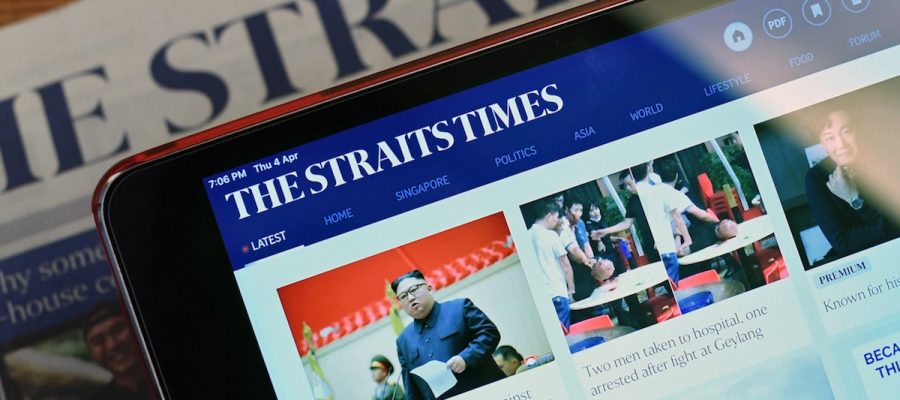
TOKYO • United States President Donald Trump has paid his “highest respect” to Japanese Prime Minister Shinzo Abe, who resigned due to deteriorating health last Friday.
Calling Mr Abe a very great friend, Mr Trump said on board Air Force One after an election campaign rally: “We’ve had a great relationship and I just feel very badly about it, because it must be very severe for him to leave.
“He loves his country so much and for him to leave, you know, I just can’t imagine what it is. He’s a great gentleman and so I’m just paying my highest respect.”
The two leaders have enjoyed a close relationship since Mr Abe, on a charm offensive to win over a mercurial leader, broke diplomatic protocol to meet the then President-elect in November 2016.
Since then, they have played golf at least five times and engaged in frequent phone calls and face-to-face summits.
Mr Abe, 65, quit after a flare-up of ulcerative colitis, a chronic inflammatory bowel disease that he feared would hinder governance.
Japanese media said he was due to speak to Mr Trump by phone tomorrow, in what will be their first call in three months.
Mr Trump’s opponent at the US presidential election in November, Democratic candidate Joe Biden, also said he was grateful for Mr Abe’s “friendship and leadership”.
“I’m sad to see you step down, but I know the strong alliance between our countries and peoples will continue for generations to come,” he wrote on Twitter.
China also sent its well wishes yesterday to Mr Abe, who was lauded for making “important efforts” to restore bilateral ties and put them on the right track.
“The two heads of state have reached an important consensus on building a bilateral relationship in keeping with the demand of a new era,” said Chinese foreign ministry spokesman Zhao Lijian.
“We appreciate PM Shinzo Abe’s important efforts in implementing the consensus and wish him an early recovery.”
Beijing added that it will continue to work with Tokyo to deepen anti-pandemic, economic and social development cooperation.
Bilateral ties have, however, been complicated of late by China’s military assertiveness in the East and South China seas and over issues such as Hong Kong.
Japan has said it was watching these developments with concern and no date has been fixed yet for a delayed state visit by Chinese President Xi Jinping amid calls for it to be cancelled altogether.
Plaudits also continued to pour in from elsewhere.
A spokesman for United Nations secretary-general Antonio Guterres saluted Mr Abe for a distinguished career, during which there had been “consistent and constructive engagement with the UN to address global challenges”.
Canadian Prime Minister Justin Trudeau thanked Mr Abe for dedicating his years to building a better world, and for the vision, leadership and friendship that had fostered bilateral ties.
New Zealand Prime Minister Jacinda Ardern called Mr Abe a person of great integrity who had “led by example and showed what hard work, passion and care for others can achieve”.
She added: “There is much Japan and New Zealand see eye to eye on. Our shared commitment to democracy and the rules-based international system makes Japan an important partner for New Zealand, especially in the Indo-Pacific region where we share common goals.”
Walter Sim
